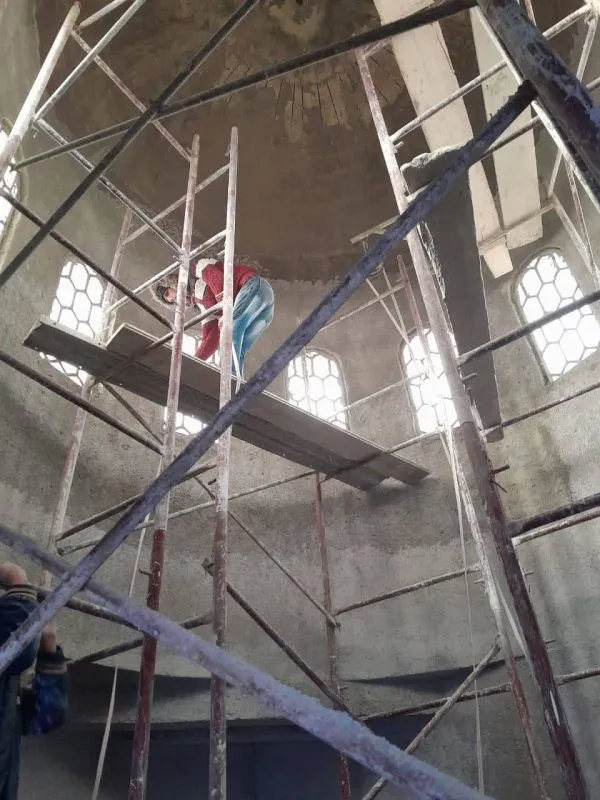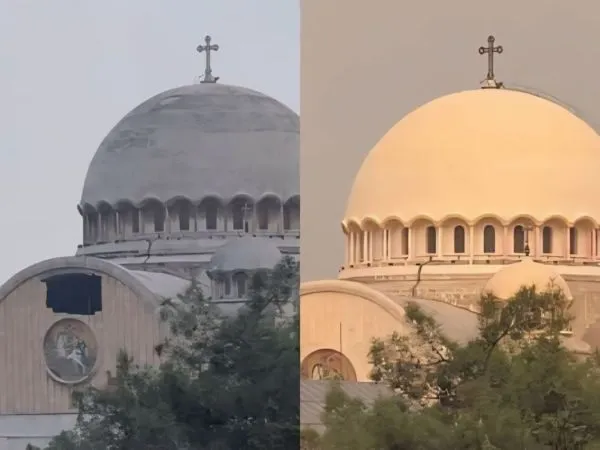
New Delhi, India, May 7, 2024 / 14:31 pm (CNA).
Several cities across India on May 3 observed the first anniversary of the mayhem and bloodshed that took place in Manipur state in northeast India, which left hundreds of Christians dead, with special prayer meetings, candlelight processions, seminars, and even protests.
According to the government’s estimate, as many as 230 died in the bloody ethnic conflict that engulfed Manipur beginning on May 3, 2023, while some observers estimate the actual figure to be much higher.
Manipur, located east of Bangladesh and at the border with Myanmar, is home to 3.3 million people. For decades, members of the Meitei, Kuki, and Naga tribes have fought over land and religious differences.
Beginning in May of last year, a protracted violent clash between the majority Meiteis, most of whom are Hindus, and the minority Christian Kukis took place. More than 60,000 Kuki refugees along with 10,000 Meiteis were driven out from Kuki strongholds.
Violence continues to simmer in the state, which is governed by the Hindu nationalist Bharatiya Janata Party (BJP). Protests marking the anniversary have been largely led by the Christian community along with secular action networks.
Half a dozen bishops representing different denominations led by Delhi Archbishop Anil J. Couto, who is also the secretary-general of the Catholic Bishops’ Conference of India, took part in the hourlong interreligious prayer gathering. The event took place at the gate of the Sacred Heart Cathedral in downtown New Delhi on the evening of May 3.
Kuki refugees, dressed in black, began the somber service by singing poignant hymns. All of the other participants followed, holding lighted candles. Church leaders then offered prayers and appeals for peace while two dozen nuns from the Missionaries of Charity drew much attention at the televised event.

“The Church, the civil society, and others are trying their best to offer consolation and relief to the affected. We pray that the displaced can go back to their [native] lands. Let the lights we hold dispel darkness and hatred from the minds and inspire all to live in peace, harmony, and brotherhood,” Couto said in his brief address, which was followed by those of other church leaders.

“As we join together in this solemn candlelight prayer, our hearts are heavy with the burden of suffering endured by the people of Manipur,” said Divine Word Missionary priest Father Norbert Herman, who organized the program as the dialogue commission secretary of the Delhi Archdiocese.
“For a year now, violence has marred their lives, casting shadows of fear and uncertainty in their path. In this hour of darkness, we stand in solidarity, offering our prayers as beacons of hope to illuminate their journey toward healing and peace,” Herman said.
“The irony of the tragedy afflicted on us is that all that has happened and continues to happen are taking place in our democratic country,” lamented a Kuki woman from Manipur in her address.
Earlier in the day, several well-known social activists under the banner of the National Federation of Indian Women, led by its chief, Annie Raja, organized a seminar at the Press Club of India on “Against Forced Amnesia, Remember Manipur.”
“After I led an investigation team to study and document the plight of the women, children, and others, Manipur police filed a criminal case charging us with stoking violence,” Raja said.
The seminar began with the premiere of this correspondent’s 23-minute investigative documentary “Manipur — a Blot on Indian Democracy.”

Delhi police allowed hundreds of Meiteis to hold their protest on the evening of May 3, while nearly 2,000 Kukis wearing black clothes held a two-hour protest on the morning of May 4, under the protection of over 100 security personnel who limited entrance to Kukis and media personnel.
While several cities held processions to mark the anniversary, in the city of Shillong — known as the Vatican of northeast India — thousands took part in the candlelight procession organized by the Church and Christian groups.
However, in violence-hit Manipur, the anniversary was a day of protest. In Imphal, the capital of Manipur, without a single Kuki, Meiteis observed the anniversary with half a dozen Meiteis shaving their heads before marching to the historic Kangla Fort. In the Kuki heartland of Churuchandpur, a complete shutdown was observed to protest the targeting of the Kuki minority.
If you value the news and views Catholic World Report provides, please consider donating to support our efforts. Your contribution will help us continue to make CWR available to all readers worldwide for free, without a subscription. Thank you for your generosity!
Click here for more information on donating to CWR. Click here to sign up for our newsletter.







Leave a Reply